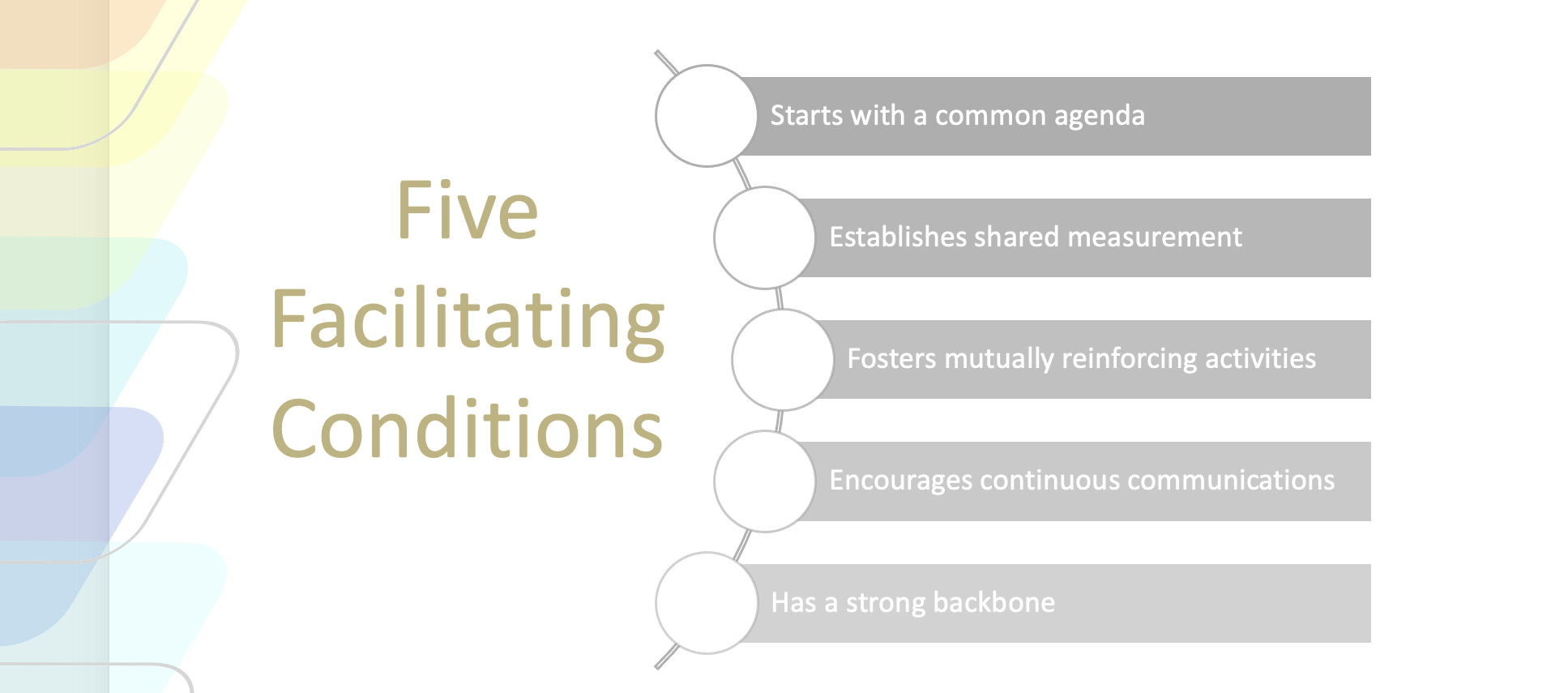
Collective impact refers to “the commitment of a group of important actors from different sectors to a common agenda for solving a specific social problem.” It recognizes that “…large-scale social change comes from better cross-sector coordination rather than from the isolated intervention of individual organizations.” For Georgia Tech’s leadership challenge in advancing health, wellness, and well-being, a collective impact framework (rather than an isolated/independent impact approach) is more appropriate and viable. The five conditions for collective success include (1) a common agenda and common understanding of the problem and the proposed solutions; (2) shared measurement systems and agreement on how success will be measured and reported; (3) mutually reinforcing activities, where each partner undertake specific initiatives in which they have expertise or strengths, and coordinates them with other partners; (4) continuous communication so as to build and sustain trust as well as enable accountability; and (5) a backbone support organization with dedicated staff separate from the participating divisions and departments who can coordinate structured decision-making processes, as well as plan, manage and support the initiatives through ongoing facilitation, logical and administrative support, and technical assistance.

The Office of the Vice President for Student Engagement & Well-being, with support from the Institute via the strategic planning process, has committed to providing the backbone support organization for this Roadmap. Once the inaugural Director for Cultivate Well-Being Action and Transformation and the Assistant Director for Health & Wellness Outreach have been hired, Georgia Tech will move forward aggressively with implementation; for each action strategy, we will identify:
- A lead partner or point of coordination;
- A detailed outline for implementation, including milestones and a projected timeline (subject to revision as needed);
- Metrics for measuring success, including both quantitative and qualitative measures, as well as incorporating more impact measurements (not just input measurements) as part of the assessment; and
- Contingency measures for either pivoting or disinvesting in the event a particular action strategy is not yielding desired impacts.
The work of public health and social justice must necessarily be integrated, interdependent, and intersectional. Health cannot be advanced in the absence of justice, and essential indicators of justice are associated with well-being. As such, our work should be guided by the Robert Wood Johnson Foundation’s “Culture of Health Action Framework” which has a focus on equity: (1) Making health a shared value; (2) Fostering cross-sector collaboration to improve well-being; (3) Creating healthier, more equitable communities; and (4) Strengthening integration of health services and systems. [iii]
Georgia Tech has the opportunity to become a national and global higher education leader in improving health, promoting wellness, and enhancing well-being for students. We employ some of the most talented scholars, researchers, and practitioners in the world; we enroll a student body that is deeply committed to activism and advocacy to improve quality of life for themselves, the surrounding metropolitan Atlanta area, and the global community; and we have a legacy of unquenchable optimism, tenacity and can-do attitude that paves the way for success.
